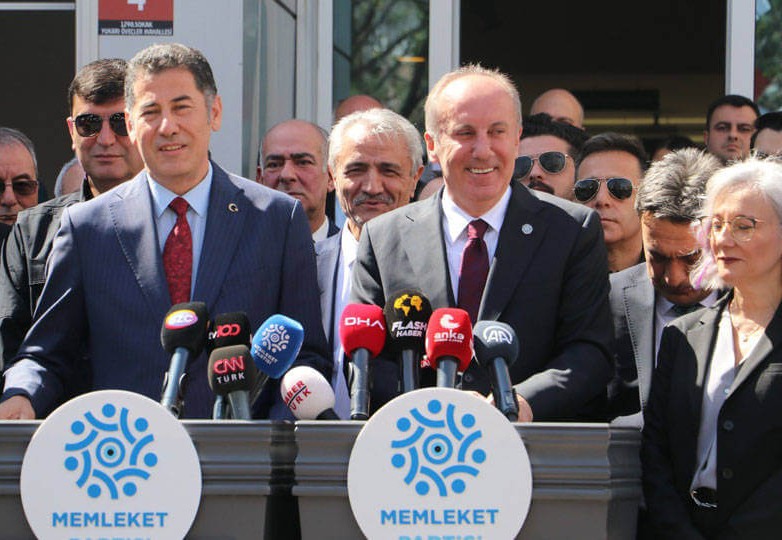*Yasemin Aydın
In Turkey’s upcoming presidential election, Recep Tayyip Erdoğan faces his toughest challenge yet. After more than two decades in power, his model of a Turkish-style presidential system is on the verge of collapse.
For over a decade Erdoğan pursued a culturally conservative and politically progressive course, promoting democracy as much as Turkey’s political climate allowed. During this time, he dismantled the intransigent secular elite dominating the state apparatus and gained control over elections. In his quest to establish an autocracy, President Erdoğan consolidated his power and took most of the state apparatus under his control. However, the Gülen movement, a group that supported him in his democratic reforms and had a strong presence in the bureaucracy, posed a challenge to his authority. The movement demonstrated the will to thwart Erdoğan’s plans for absolute rule, as a consequence of which it has been subjected to a harsh crackdown.
After a coup attempt in 2016, Erdoğan declared the Gülen movement public enemy number one and eliminated it completely from Turkey’s public life. In 2017 he established the regime he had always aspired to create, with the president now able to appoint 80 percent of the judges on the Constitutional Court and wielding vast power and influence over the parliament and judiciary.
A few years later, this presidential regime is falling apart. The official inflation rate for 2022 was 64 percent, according to TurkStat, while the ENAG private research group estimated 137 percent. Turkey’s changing foreign policy has led to a loss of soft power in the Islamic world, and Erdoğan’s promise to project strength has failed, resulting in a significant 10 percent loss of voter support since the 2018 elections.
The electoral system Erdoğan built no longer favors him. To be elected, a candidate needs a simple majority, that is, 50 percent + 1 of the vote. Erdoğan assumed that he would always dominate the conservative vote, which accounts for about 60 percent of the total, and that the remaining 40 percent would never unite in a political contest. Both of these assumptions have proven wrong. The emergence of new right-wing parties has ended his domination of conservative voters, and the opposition has developed the political will to unite. The election slogan of the opposition’s presidential candidate, Kemal Kılıçdaroğlu, is “We will win through unity.”
Erdoğan faces his toughest election yet on May 14. He has come up with many surprises in past elections, and some say this time will be no different. So far, however, he has not done much more than take advantage of being in power for 21 years. His propaganda is based on the infrastructure projects he has implemented in the past two decades as well as the country’s stability. The opposition addresses repression, corruption and the politicization of the judiciary but focuses on a dramatic decline in purchasing power.
Since mid-April Erdoğan has been running in the opinion polls neck-and neck or losing to his main rival Kılıçdaroğlu. But Kılıçdaroğlu also fails to reach the required 50 percent + 1 in the first round. There are four candidates for president, two of whom are Erdoğan and Kılıçdaroğlu. The other two, Muharrem İnce and Sinan Oğan, have no chance of winning because their combined share of the vote is less than 10 percent. However, their relative influence is much greater than their total votes since Erdoğan and Kılıçdaroğlu are in a dead heat, and neither of the main contenders is guaranteed victory in the first round. In the second round, whomever İnce and Oğan support is likely to win unless there is a significant change in their share of the vote.
At this point, we should take a closer look at these two seemingly insignificant but potentially impactful players. İnce was nominated by the Memleket (Homeland) Party, while Oğan is supported by the Zafer (Victory) Party. Interestingly, both parties were founded in mid-2021 as spinoffs from larger opposition parties, with no discernible ideological or political differences. There are two possible scenarios as to how this came to be: Either the two men split from their former parties because of their egos, or their separation was arranged by Erdoğan from the beginning. At the moment there is no overwhelming evidence for either of the scenarios. Whatever their motives, they will have practical implications: They will prevent Kılıçdaroğlu from winning in the first round. In any case, it is highly unlikely that Erdoğan will win in the first round, either. After securing participation in the second round, they will possibly ally with Erdoğan. Since Erdoğan has been in control of state resources for over two decades, he will almost certainly get their support. The possibility of allying with Kılıçdaroğlu is relatively remote, considering that they could have done so in the first round if they were seeking a victory for him.
Overall, given the limited resources, it seems that Erdoğan has put two (Trojan) horses into the race, a move worthy of the moniker “election wizard.” Fortunately for the opposition, İnce, the more dangerous of the two, represents a vulnerable horse that can easily be halted. The other candidate, Oğan, is not a figure involved in much controversy, but his ideologically driven identity means he has no chance of garnering votes. Erdoğan and Kılıçdaroğlu will thus have a direct confrontation, but they have different intentions with regard to the horses. Erdoğan wants the horses to run faster, while Kılıçdaroğlu wants them to slow down. It is well known among equestrians that it is easier to slow a horse down than to make it speed up.
*Yasemin Aydın is a social anthropologist and social psychologist.



